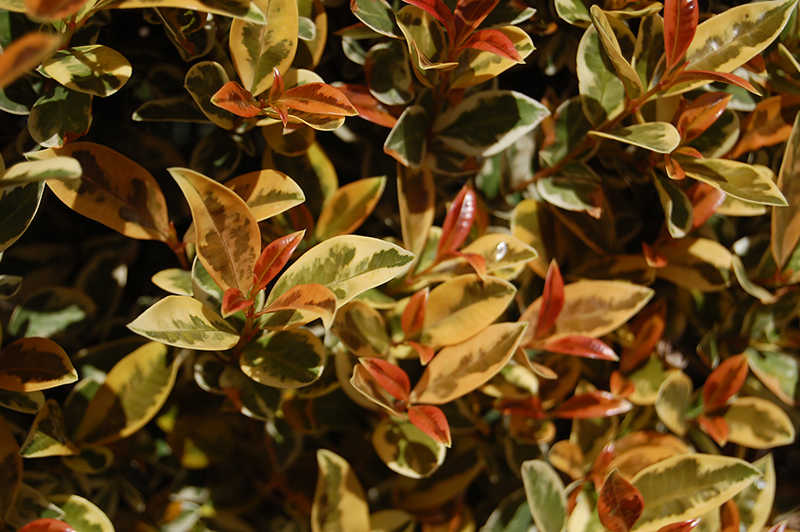Lemon Swirl® Variegated Brush Cherry
Description
This variety is usually maintained as a column, bush, or multi-trunked tree; a popular bonsai or topiary selection; beautiful foliage emerges bronze-red and slowly matures to deep green with an irregular pale yellow margin
Landscape Attributes
Lemon Swirl® Variegated Brush Cherry is a multi-stemmed evergreen tree with an upright spreading habit of growth. Its average texture blends into the landscape, but can be balanced by one or two finer or coarser trees or shrubs for an effective composition.
Lemon Swirl® Variegated Brush Cherry is recommended for the following landscape applications;
Planting & Growing
Lemon Swirl® Variegated Brush Cherry will grow to be about 20 feet tall at maturity, with a spread of 10 feet. It has a low canopy with a typical clearance of 3 feet from the ground, and is suitable for planting under power lines. It grows at a medium rate, and under ideal conditions can be expected to live for 40 years or more.
This tree does best in full sun to partial shade. It prefers to grow in average to moist conditions, and shouldn't be allowed to dry out. It is not particular as to soil type or pH, and is able to handle environmental salt. It is somewhat tolerant of urban pollution. This is a selected variety of a species not originally from North America.
Lemon Swirl® Variegated Brush Cherry is a fine choice for the yard, but it is also a good selection for planting in outdoor pots and containers. Its large size and upright habit of growth lend it for use as a solitary accent, or in a composition surrounded by smaller plants around the base and those that spill over the edges. It is even sizeable enough that it can be grown alone in a suitable container. Note that when grown in a container, it may not perform exactly as indicated on the tag - this is to be expected. Also note that when growing plants in outdoor containers and baskets, they may require more frequent waterings than they would in the yard or garden. Be aware that in our climate, this plant may be too tender to survive the winter if left outdoors in a container. Contact our experts for more information on how to protect it over the winter months.

